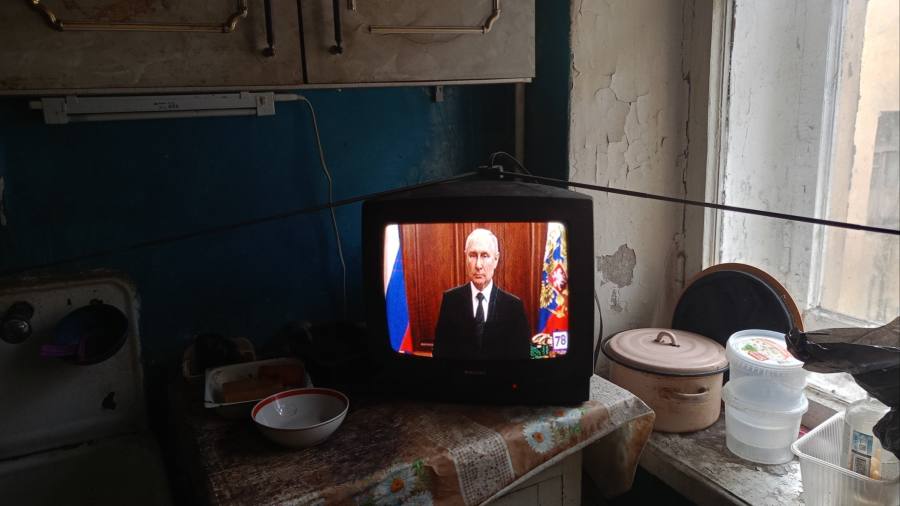Receive free Vladimir Putin updates
We’ll send you a myFT Daily Digest email rounding up the latest Vladimir Putin news every morning.
Vladimir Putin has survived the most serious threat to his authority in two decades as Russia’s paramount leader. Yet the aborted rebellion led by Yevgeny Prigozhin and his Wagner paramilitaries has laid bare the utter folly of the war Putin unleashed against his neighbour. The Kremlin is bogged down in a conflict it cannot win, which has taken a grave toll on its economic future, turned it into a pariah for western countries, and brought armed insurgents to within a couple of hours’ drive of Moscow. The origins of Saturday’s mutiny and the “deal” that seemingly defused it are cloaked in fog. But it is hard not to conclude that Putin is left weakened.
The war against Ukraine was an exercise in miscalculation and hubris from the start. Putin’s neo-imperialist escapade overestimated his own army’s capabilities, and underrated the determination both of Kyiv’s forces to defend their homeland with their blood, and of international democracies to penalise Russia economically and provide military aid to Ukraine.
The Russian leader compounded his error by contracting out part of the war to a private army led by an ex-convict. Once tensions exploded between Wagner’s thuggish warlord and the state military and its hapless leadership, this rebounded on Putin personally.
A conspiracy theory in Russia suggests the weekend’s events could have been bizarre theatre aimed at allowing Putin to project power and lure other would-be competitors to break cover. This seems far-fetched. The president appears to have been openly confronted by a former ally. In an awkward TV address, he spoke of a stab in the back and drew striking parallels with the collapse of the tsarist empire in 1917. Prigozhin was persuaded to leave Russia for Belarus, presumably through menace or bribery. Yet this required intervention by Belarus president Alexander Lukashenko, for whom Putin has in the past scarcely hidden his contempt.
Prigozhin’s mutiny broke a taboo against challenging Russia’s mafia-style leader, and pierced the veil of his invulnerability. Rather than relying on fear and the destruction of all potential opponents within Moscow’s elites, Putin has presided as the ultimate arbiter between factions — the one who can hold things together while keeping the support of the Russian people.
A man until recently presented as a nationalist hero, moreover, in his video rant on Friday debunked the Kremlin’s entire narrative behind the Ukraine war. Prigozhin said Russia had faced no immediate threat from Ukraine when Putin launched his invasion last year, and that ethnic Russians in eastern Ukraine were now being killed or driven from their home by Russian forces.
Kyiv says there has been little sign of disruptions to Moscow’s invading army over the weekend. But Russia’s military effort may be sapped by the loss of Wagner as a brutal fighting force — without the tyrannical Prigozhin on the ground to rally them, and its forces dispersed or absorbed into the regular military. The instability at home could yet weaken resolve and provide openings for Ukraine’s counter-offensive.
Putin’s response might be to fall back on the terror tactics that have served Soviet and Russian leaders for centuries: stepping up the crackdown that has snuffed out independent media and banished prominent opposition figures to the modern gulag. The weekend’s unrest serves as a reminder, too, that if Putin is ever toppled, it could be by more hardline elements determined to prosecute the war in Ukraine in still more vicious fashion. For now, though, a president once seen as having led Russia out of the mayhem of its post-Soviet transition is reaping the fruits of his own calamitous misjudgments.
Read the full article here





